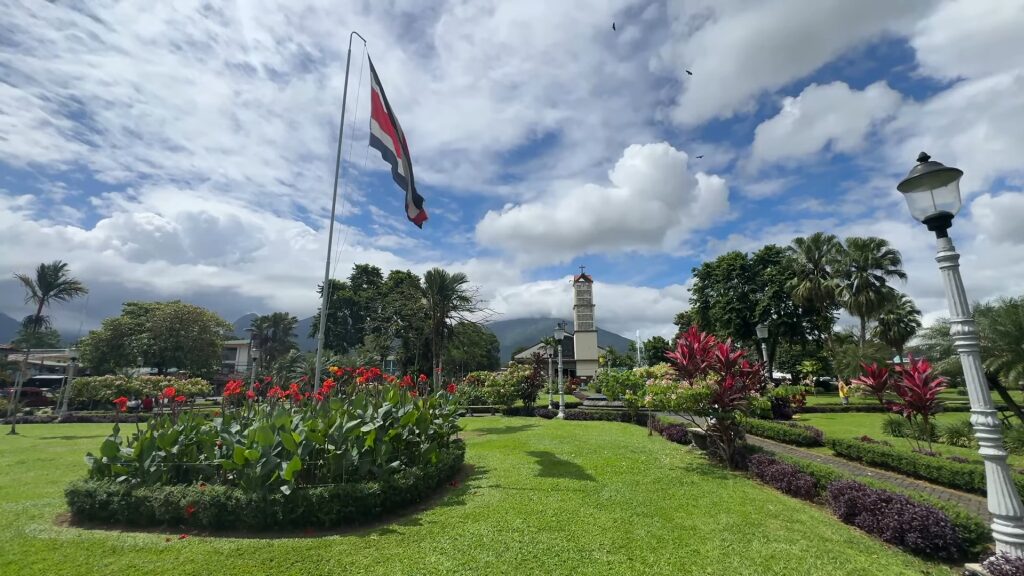Did you know that over 1.4 million U.S. citizens visit Costa Rica every year? This stunning Central American country is a top vacation destination, but it’s essential for travelers to be aware of the safety and security concerns outlined in the U.S. Department of State’s Costa Rica Travel Advisory. As someone who has experienced the natural beauty and rich culture of Costa Rica, I understand the excitement of planning a trip, but it’s crucial to prioritize your personal safety and be informed about the potential risks.
The U.S. Department of State issues this advisory to provide important information to U.S. citizens about the security situation, crime rates, and travel risks in Costa Rica. This advisory covers a range of important topics, including violent crime, theft and robbery, assault and sexual violence, and safety precautions for tourists. It also provides guidance on emergency assistance for U.S. citizens, high-risk travel areas, and adventure tourism activities. The advisory is regularly updated to ensure U.S. travelers have the latest information to make informed decisions about their trip to Costa Rica.
Key Takeaways
- The U.S. Department of State issues a Costa Rica Travel Advisory to inform U.S. citizens about the security situation, crime rates, and travel risks in the country.
- The advisory covers important topics such as violent crime, theft and robbery, assault and sexual violence, and safety precautions for tourists.
- It provides guidance on emergency assistance for U.S. citizens, high-risk travel areas, and adventure tourism activities.
- The advisory is regularly updated to ensure U.S. travelers have the latest information to make informed decisions about their trip to Costa Rica.
- It’s crucial for U.S. travelers to review the advisory and follow the recommended safety tips to ensure a safe and enjoyable travel experience in Costa Rica.
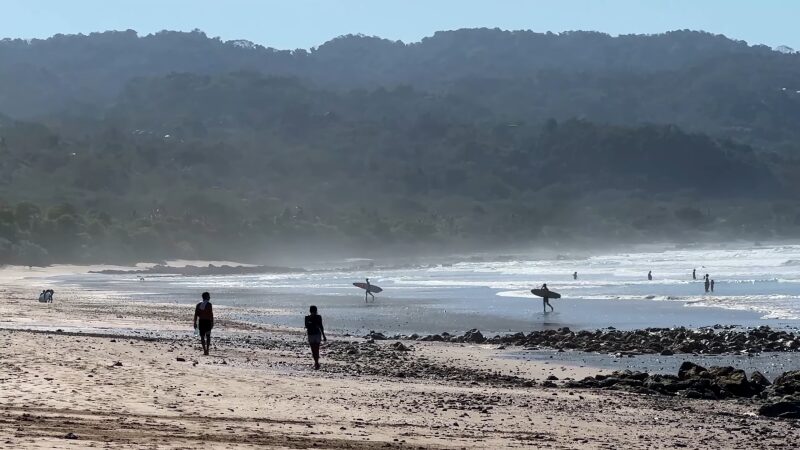
Current Travel Advisories for Costa Rica
The U.S. Department of State’s current travel advisory for Costa Rica advises U.S. citizens to “exercise increased caution” due to the prevalence of crime in the country. While petty crimes such as theft and pickpocketing are the predominant threats faced by tourists, more violent crimes, including armed robbery, homicide, and sexual assault, have also been reported.
Crime Overview
The advisory highlights that areas frequently visited by tourists, including national parks, are particularly vulnerable to these criminal activities. Travelers to Costa Rica are advised to remain vigilant, avoid displaying signs of wealth, and refrain from physically resisting any robbery attempt.
Areas of Concern
Certain regions and locales within Costa Rica have been identified as areas of particular concern for Costa Rica travel advisories, Costa Rica crime, and Costa Rica security risks. Tourists are advised to exercise caution and remain vigilant, particularly in areas frequented by visitors.
Safety Precautions
To mitigate the risks associated with Costa Rica tourist safety and Costa Rica travel risks, the advisory recommends that U.S. citizens take several safety precautions. These include securing valuables, avoiding isolated areas, and exercising caution when participating in adventure sports or activities.
Costa Rica Travel Advisory
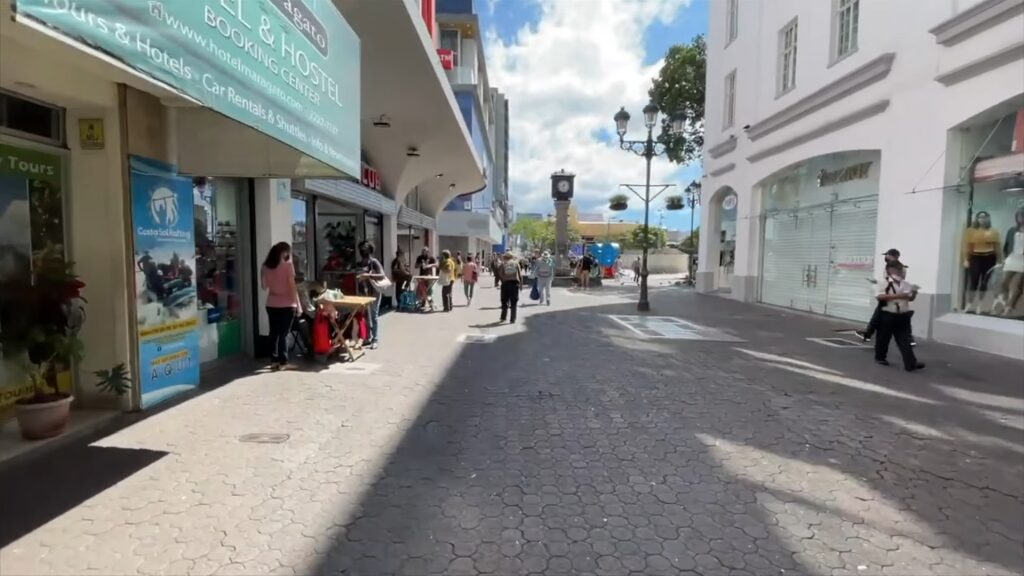
The U.S. Department of State’s Costa Rica Travel Advisory addresses several types of crime that pose risks to U.S. travelers. Violent crimes, including homicide and sexual assault, have occurred in Costa Rica. Armed assailants often target victims for their smartphones, wallets, or purses, highlighting the threat of Costa Rica violent crime.
Theft and Robbery
Theft and pickpocketing are common in Costa Rica, particularly in areas frequented by tourists. The advisory advises U.S. citizens to avoid displaying signs of wealth, such as expensive watches or jewelry, and to not physically resist any robbery attempt, which can help mitigate the risk of Costa Rica theft and robbery.
Assault and Sexual Violence
The U.S. Department of State’s advisory also warns about the risk of assault and sexual violence in Costa Rica, particularly for students and volunteers. Travelers are encouraged to exercise caution and awareness to prevent incidents of Costa Rica assault and sexual violence.
Tourist Destinations
The advisory highlights that certain tourist destinations, such as national parks, may be more vulnerable to crime. U.S. citizens visiting Costa Rica are advised to be vigilant and take appropriate safety precautions when exploring these popular tourist destinations.
Travel Safety Tips for Costa Rica

The U.S. Department of State’s Costa Rica Travel Advisory provides valuable guidance for U.S. travelers to ensure a safe and enjoyable experience in the country. From personal security measures to adventure sports considerations, the advisory covers a range of important safety topics.
Personal Security
To maintain personal security, the advisory recommends being aware of your surroundings and avoiding displaying signs of wealth, such as expensive jewelry or electronics. It also advises against physically resisting any robbery attempt, as this could escalate the situation. Travelers should remain vigilant and take precautions to protect themselves from becoming victims of petty or violent crimes.
Beach Safety
When visiting Costa Rica’s beaches, the advisory cautions about the dangers of swimming. Travelers should check for rip currents and only swim at beaches with lifeguards on duty. Following local safety guidelines and exercising caution can help prevent incidents and ensure a safe beachgoing experience.
Adventure Sports
Costa Rica is renowned for its diverse range of adventure sports, but the advisory warns that some tour operators may not adhere to international safety standards. Travelers should exercise caution and common sense when participating in activities like bungee jumping, skydiving, and whitewater rafting. Researching reputable providers and following safety protocols can help mitigate the risks associated with these thrilling experiences.
Natural Disasters
The advisory notes that Costa Rica is prone to natural disasters, such as earthquakes, volcanic eruptions, and floods. Travelers should monitor local alerts and follow the guidance provided by park services and other authorities. Being prepared and staying informed can help ensure the safety of U.S. citizens in the event of a natural disaster.
By following the safety tips outlined in the U.S. Department of State’s Costa Rica Travel Advisory, U.S. travelers can enjoy a safe and memorable journey in this beautiful Central American destination.
Emergency Assistance for U.S. Citizens
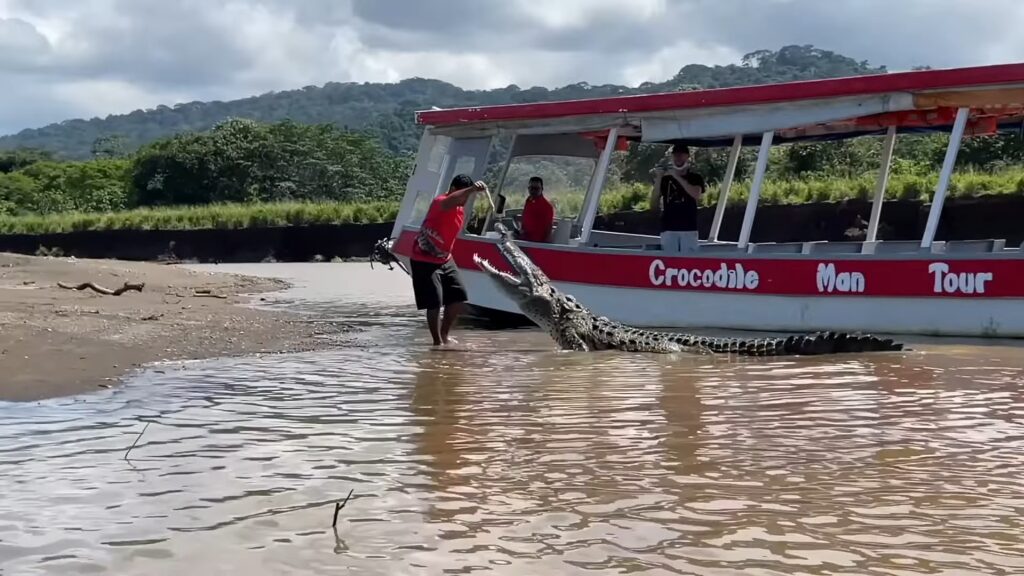
The U.S. Department of State’s Costa Rica Travel Advisory provides crucial information on the emergency assistance available to U.S. citizens. It strongly encourages U.S. citizens who become victims of crime, including sexual assault, to report the incident to the local police and immediately contact the U.S. Embassy in San Jose.
Reporting Crimes
The U.S. Embassy can assist victims of crimes in Costa Rica by helping them find appropriate medical care, navigating the process of reporting the crime to the local authorities, and providing information on victim support services and legal assistance. A police report with a case number is also necessary for insurance claims and airline rebooking fees.
Victim Support
The U.S. Embassy in San Jose can connect U.S. citizens who have been victims of crimes, such as sexual assault, with the appropriate resources and support services. This includes assistance in finding medical care, counseling, and legal aid to help navigate the local justice system.
Embassy Services
In addition to helping with crime reporting and victim support, the U.S. Embassy in Costa Rica can provide a range of other services to U.S. citizens in need of emergency assistance. This includes facilitating the replacement of lost or stolen passports, coordinating with local authorities in the event of a natural disaster or other emergency, and providing information on local laws and regulations.
The U.S. Department of State strongly recommends that all U.S. citizens traveling to Costa Rica enroll in the Smart Traveler Enrollment Program (STEP). This free service allows the embassy to better assist in locating and contacting U.S. citizens in the event of an emergency.
High-Risk Travel Areas in Costa Rica
While Costa Rica is generally considered a safe destination for travelers, the U.S. Department of State’s Travel Advisory highlights certain high-risk areas within the country. One notable concern is the frequent occurrence of demonstrations and protests across Costa Rica.
Demonstrations and Protests
Demonstrations and protests often arise in Costa Rica in response to political or economic issues, on significant national holidays, and during international events. These gatherings can potentially turn confrontational and even violent. The Travel Advisory advises U.S. citizens to avoid areas where protests are taking place and to closely monitor local media for updates on the security situation.
Isolated Locations
Another high-risk area highlighted in the Travel Advisory is hiking in remote, isolated locations within Costa Rica’s national parks. The advisory cautions that first responders may have limited ability to locate and assist missing persons in these remote areas. Travelers are advised to register with the park authorities, obtain the necessary permits, and consider using a certified tour operator when exploring the country’s rugged natural landscapes.
Adventure Tourism in Costa Rica
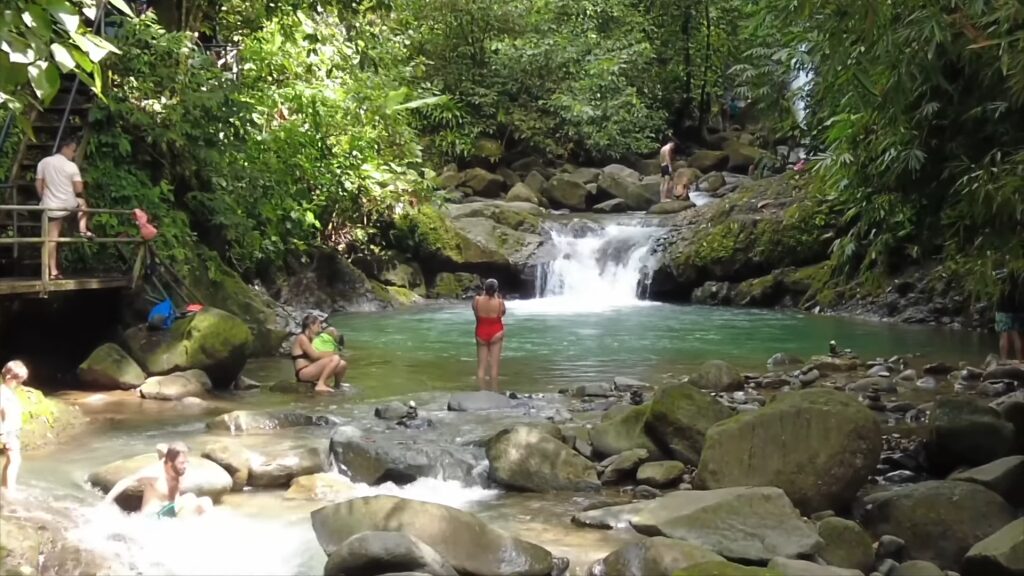
The U.S. Department of State’s Costa Rica Travel Advisory addresses the thrilling yet potentially risky world of adventure tourism in the country. While Costa Rica’s tourism industry is generally well-regulated, the advisory notes that some lapses in safety and oversight may occur, particularly with adventure sports operators. Travelers are advised to exercise caution and common sense when engaging in activities like bungee jumping, skydiving, hiking, rappelling, and whitewater rafting.
Hiking and National Parks
Costa Rica is renowned for its stunning national parks and diverse hiking opportunities. The travel advisory encourages visitors to stick to marked trails, register with the park authorities, and consider using a certified tour operator when exploring Costa Rica’s natural wonders. This helps ensure a safe and enjoyable experience, as getting lost or injured in remote, isolated areas can be particularly problematic.
Tour Operators
The advisory highlights the importance of thoroughly researching Costa Rica’s tour operators, as some may not adhere to international safety standards. Travelers are advised to choose reputable, certified providers for any adventure tourism activities to minimize the risks associated with these thrilling experiences.
Medical Facilities
The U.S. Department of State’s advisory also cautions that medical treatment may be delayed or limited, particularly in areas outside of Costa Rica’s major metropolitan centers. Travelers are encouraged to purchase medical evacuation insurance to ensure they have access to appropriate care if an accident or medical emergency occurs during their Costa Rica adventure tourism activities.
Conclusion
The U.S. Department of State’s Costa Rica Travel Advisory provides valuable information for U.S. citizens planning to visit the country. By highlighting the potential risks and providing guidance on how to stay safe, the advisory helps U.S. travelers make informed decisions and take appropriate measures to protect themselves during their trip to Costa Rica.
The advisory covers a wide range of important topics, including crime rates, safety precautions, emergency assistance, high-risk travel areas, and adventure tourism activities. It is crucial for U.S. citizens to review the latest advisory and follow the recommended safety tips to ensure a safe and enjoyable travel experience in Costa Rica.
By staying informed and taking the necessary precautions, U.S. travelers can fully immerse themselves in the beauty and wonder of Costa Rica while minimizing the risks associated with their journey. The U.S. Department of State’s travel advisory serves as a valuable resource for navigating the country’s security landscape and making the most of a trip to this vibrant Central American destination.
FAQ
What is the current U.S. Department of State travel advisory for Costa Rica?
The U.S. Department of State’s current travel advisory for Costa Rica advises U.S. citizens to “exercise increased caution” due to crime. The advisory covers a range of important topics, including violent crime, theft and robbery, assault and sexual violence, and safety precautions for tourists.
What types of crimes are U.S. travelers at risk of in Costa Rica?
The U.S. Department of State’s Costa Rica Travel Advisory addresses several types of crime that pose risks to U.S. travelers, including violent crimes like homicide and sexual assault, armed robbery, and theft and pickpocketing, particularly in areas frequented by tourists.
What safety precautions are recommended for U.S. travelers in Costa Rica?
The U.S. Department of State’s Costa Rica Travel Advisory provides several safety tips, including being aware of your surroundings, not displaying signs of wealth, and not physically resisting any robbery attempt. It also cautions about the dangers of beach swimming and adventure sports, and the risks of natural disasters.
What emergency assistance is available for U.S. citizens in Costa Rica?
The U.S. Department of State’s Costa Rica Travel Advisory encourages U.S. citizens who are victims of crime, including sexual assault, to report the incident to the local police and contact the U.S. Embassy in San Jose, which can help victims find appropriate medical care, assist with reporting the crime, and provide information on victim support services and legal assistance.
What are some high-risk travel areas within Costa Rica?
The U.S. Department of State’s Costa Rica Travel Advisory identifies certain high-risk travel areas, such as areas around protests and demonstrations, and remote, isolated areas of national parks, where first responders may have limited ability to locate and assist missing persons.
What are the risks associated with adventure tourism activities in Costa Rica?
The U.S. Department of State’s Costa Rica Travel Advisory notes that while the tourism industry is generally regulated, some lapses in safety and oversight may occur, particularly with adventure sports operators. It advises travelers to use caution and common sense when engaging in activities like bungee jumping, skydiving, hiking, and whitewater rafting.
Source Links
- https://travel.state.gov/content/travel/en/traveladvisories/traveladvisories/costa-rica-travel-advisory.html
- https://travel.state.gov/content/travel/en/international-travel/International-Travel-Country-Information-Pages/CostaRica.html
- https://travel.state.gov/content/travel/en/traveladvisories/traveladvisories.html/

